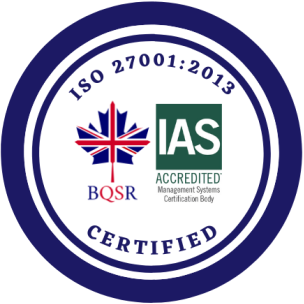In the high-stakes world of recruitment, your decision is only as good as your intel.
But hey, no pressure! Let’s face it: checking references can feel like playing detective in a world where everyone’s trying to put their best foot forward. Here’s how you can crack the case and know genuine candidates in a sniff.
What are reference checks?

Reference checks are a part of the hiring process where employers contact individuals who have worked closely with a job candidate in the past to gather information about their performance, work ethic, and suitability for a particular role.
These individuals, known as references, can be former supervisors, colleagues, or clients with direct knowledge of the candidate’s work abilities and professional conduct.
The purpose of reference checks is to verify the information provided by the new employee, validate their qualifications and experience, and gain insights into their work-related skills and attributes.
Reference checks are a valuable tool for hiring managers to assess candidates’ suitability for a position and make informed decisions.
5 key benefits of reference checks
1. Verifies qualifications and experience
Digging into reference checks gives you the golden ticket to verify a candidate’s qualifications and experience, going beyond what’s been discussed in interviews or presented in their resume.
Reference checks work as a truth serum, bringing to light vital details such as performance metrics, employment duration, and more, thus ensuring your potential hire truly brings the skills and expertise they claim to have.
2. Checks culture fit
Understanding a candidate’s compatibility with the company’s culture is crucial for long-term success.
Reference checks allow you to gather insights into a prospect’s work history, communication skill sets, and ability to collaborate effectively.
It’s an essential step to foster a positive candidate experience and ensure the new hire truly meshes with your company’s vibe.
3. Confirms work ethic and performance
By speaking with individuals who have worked closely with the candidate, reference checks provide valuable information about the candidate’s skill, reliability, previous job descriptions, and overall performance.
References can also share their observations of the candidate’s ability to meet deadlines, handle challenges, and contribute to the team’s success.
4. Identifies strengths and weaknesses
Reference checks are like a magnifying glass on a candidate’s strengths and weaknesses, offering you a comprehensive view of their potential.
Past colleagues and supervisors can provide real-life examples of a candidate’s accomplishments, their knack for problem-solving, leadership abilities, and areas that might need a little extra attention or development.
5. Mitigates hiring risks
Thorough reference checks are your best line of defense against hiring mishaps.
They help uncover any potential warning signs or issues that might have slipped under the radar during the interview.
Equipped with this knowledge, you can make well-informed decisions, drastically lowering the chances of a costly hiring mistake and boosting the odds of securing a truly qualified and dependable candidate.
3 steps to prepare for reference checks
1. The who: Identify key references
The first leap towards an effective reference check is singling out the right referees.
This doesn’t mean picking any name off a list; it’s about identifying those who have shared a workspace with your candidate.
Supervisors, teammates, or clients who’ve directly worked with the candidate in their previous roles will offer you the most pertinent insights.
2. The how: Contacting references
After you’ve got your shortlist of references, it’s time to roll up your sleeves and get their current contact details.
Make sure you’ve got their correct phone numbers and email addresses at hand. While you’re at it, remember to lean towards professional contacts over personal ones.
After all, they’ve seen your candidate in action in a work environment.
3. The why: Setting clear expectations
Before you start dialing or typing out emails, take a moment to brief your candidate about what’s coming.
Make sure they understand the rationale and process behind the reference checks. Emphasize the value of genuine feedback and reassure them that all shared information will be handled with utmost confidentiality.
This will not only put your candidate at ease but also pave the way for a smoother checking process.
10 steps to effectively conduct reference checks
1. Prepare a list of key references
Kickstart the process by identifying the most pertinent references for your candidate. Double-check that the contact information you have is both current and accurate.
2. Set clear expectations
Keep the candidate in the loop about the whys and hows of the reference checks. Reinforce the importance of honest feedback and underline the confidentiality of the process.
3. Choose the proper method of communication

Decide whether to conduct reference checks over the phone or via email.
Phone conversations allow for more interactive discussions and the opportunity to ask follow-up questions, while email can serve as an alternative method for gathering reference feedback.
4. Build rapport and trust
Make a great first impression when contacting references. Introduce yourself, outline your role, thank them for their time, and build a rapport. A comfortable conversation encourages more candid insights.
5. Prepare a set of targeted questions
Develop a set of questions that cover important aspects of the new hire’s professional background, skills, work ethic, performance, and overall recommendation.
Ensure the list of questions is open-ended and specific to gather detailed and meaningful responses.
6. Practice active listening and note-taking
During the reference check conversation, actively listen to the reference’s responses. Take detailed notes to capture key points, memorable examples, and any strengths or concerns mentioned.
These notes will assist in evaluating and comparing reference feedback.
7. Respect confidentiality
Emphasize the confidentiality of the reference check process to the references. Assure them that their feedback will be handled with utmost discretion and used solely for evaluating the candidate’s suitability for the role.
Avoid sharing any information provided by the references with unauthorized individuals.
8. Adhere to legal and ethical considerations
Keep yourself well-versed with the laws and ethical guidelines related to reference checks, privacy, and discrimination in your jurisdiction.
Treat all candidates equally and avoid asking inappropriate questions.
9. Analyze and assess the feedback

Go through your notes and identify patterns, strengths, weaknesses, and overall impressions.
Consistency in feedback from different sources can validate the candidate’s claims and offer a comprehensive understanding of their capabilities.
10. Consult with the hiring team
Share the reference check feedback with the hiring team to gather additional perspectives and insights.
Gaining a variety of perspectives will help make a balanced and well-informed decision, ensuring you choose the right candidate for the role.
6 different types of reference checks
1. Employment references: These references come from the candidate’s former employers and provide insights into the candidate’s job title, job performance, work ethic, and overall suitability for the role.
2. Character references: Character references are typically personal or professional acquaintances who can vouch for the candidate’s skills, character, integrity, and personal qualities. They can provide a broader perspective on the candidate’s personality traits and interpersonal skills.
3. Academic references: Academic references are valuable for candidates who are recent graduates or have limited work experience. Professors, mentors, or advisors can provide insights into the candidate’s academic achievements, research skills, and potential for success in a professional setting.
4. Professional references: Professional references include individuals who have worked closely with the candidate but may not be former direct supervisors. These references can provide additional perspectives on the candidate’s work style, collaboration skills, and basic information.
5. Managerial References: Managerial references come from former supervisors or managers who can offer valuable insights into the candidate’s experience, leadership abilities, decision-making skills, and overall managerial potential.
6. Peer References: Peer references involve speaking with colleagues or coworkers who have worked alongside the candidate. They can provide insights into the candidate’s teamwork, flexibility, and ability to collaborate effectively.
4 ways an ATS streamlines and enhances reference checks

1. Efficient reference request management
An ATS simplifies the process of requesting references by automating the generation and sending of reference check requests.
This ensures that reference requests are consistently and promptly sent to the designated individuals, saving time and reducing manual effort.
2. Centralized tracking
Say goodbye to scattered information and endless spreadsheets. An ATS stores all reference check information in one central hub, making it a breeze to track responses and send reminders when needed.
The result? No reference ever gets overlooked.
3. Documentation and compliance
With an ATS, you can keep your reference check process compliant and your documentation in check. It provides secure storage and organization for reference records, ensuring you meet data protection regulations—a lifesaver in industries like healthcare or finance where compliance is key.
4. Data analysis and reporting
An ATS offers data analysis and reporting capabilities for reference checks.
With data-driven recruitment analytics, employers can identify patterns or common patterns among candidates and make informed decisions.
P.S. If you’re looking for an AI-powered ATS + CRM solution, then check out Recruit CRM. Book a demo now to see it in action!
Frequently asked questions
1. What are some common reference check questions?
As part of the reference check process, interviewers often ask a set of open-ended questions to gather valuable insights into the candidate’s qualifications and suitability for the role. These questions help assess their performance, work ethic, and teamwork. Some common reference check open-ended questions and provide a comprehensive view of the candidate include:
How would you describe the employee performance during their time with your organization?
- Can you provide specific examples of the candidate’s achievements or contributions?
- What were the candidate’s major strengths and areas for improvement in their previous role?
- What were the candidate’s significant accomplishments in their previous position?
By asking open-ended questions and allowing references to share their experiences, interviewers can gather valuable insights to evaluate the candidate’s qualifications and suitability for the open position.
2. What is the difference between a reference check and a background check?
A reference check involves contacting individuals who have worked directly with the candidate to gather insights into their performance and suitability for a specific role.
On the other hand, a background check involves verifying the candidate’s personal and professional history, such as employment history, educational qualifications, criminal records, and credit history.
While reference checks provide subjective feedback from people interacting with the candidate, background checks aim to validate factual information.
3. How many reference checks should be conducted?
It is common for employers to conduct at least two to three reference checks to gather multiple perspectives on the candidate’s abilities and work performance.
Having multiple references allows for a more comprehensive assessment of the candidate’s qualifications and helps validate the information provided by the candidate.




